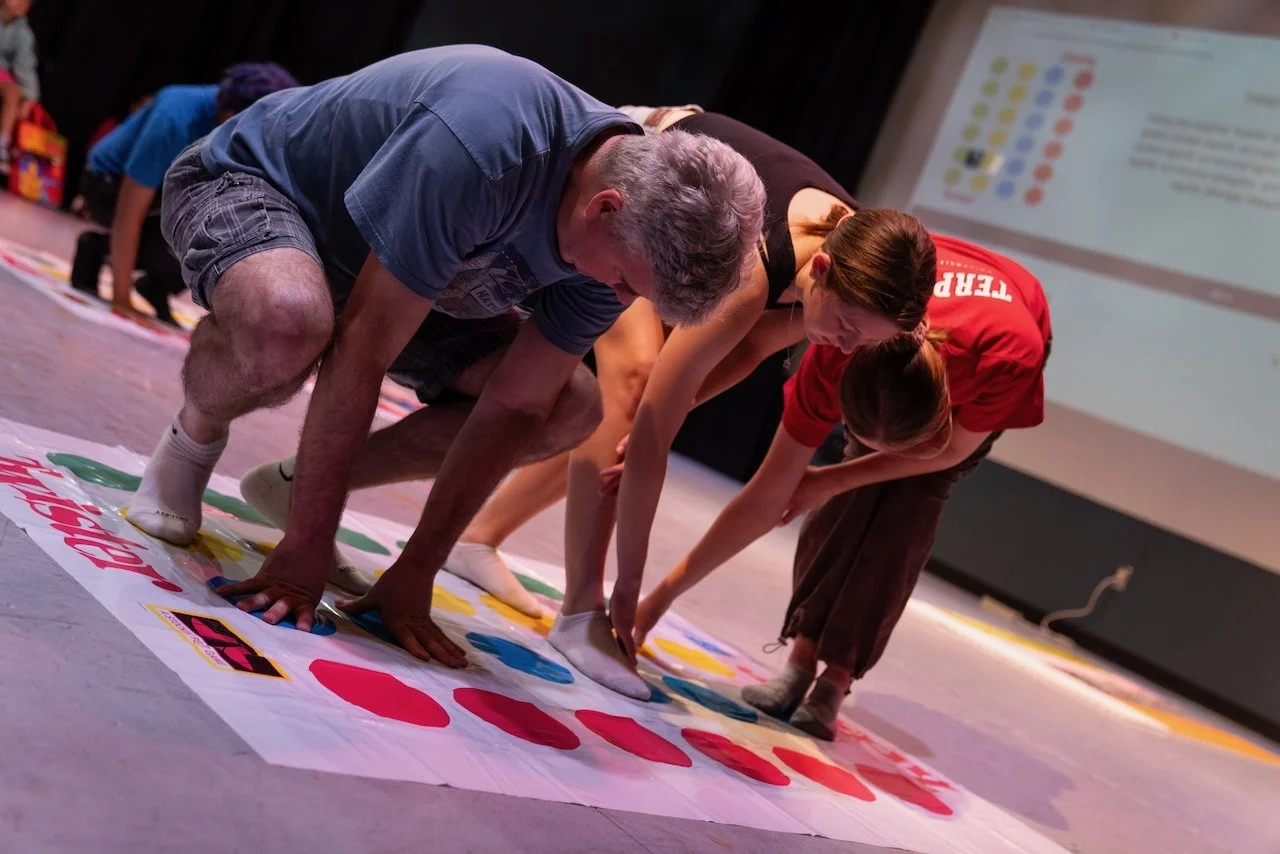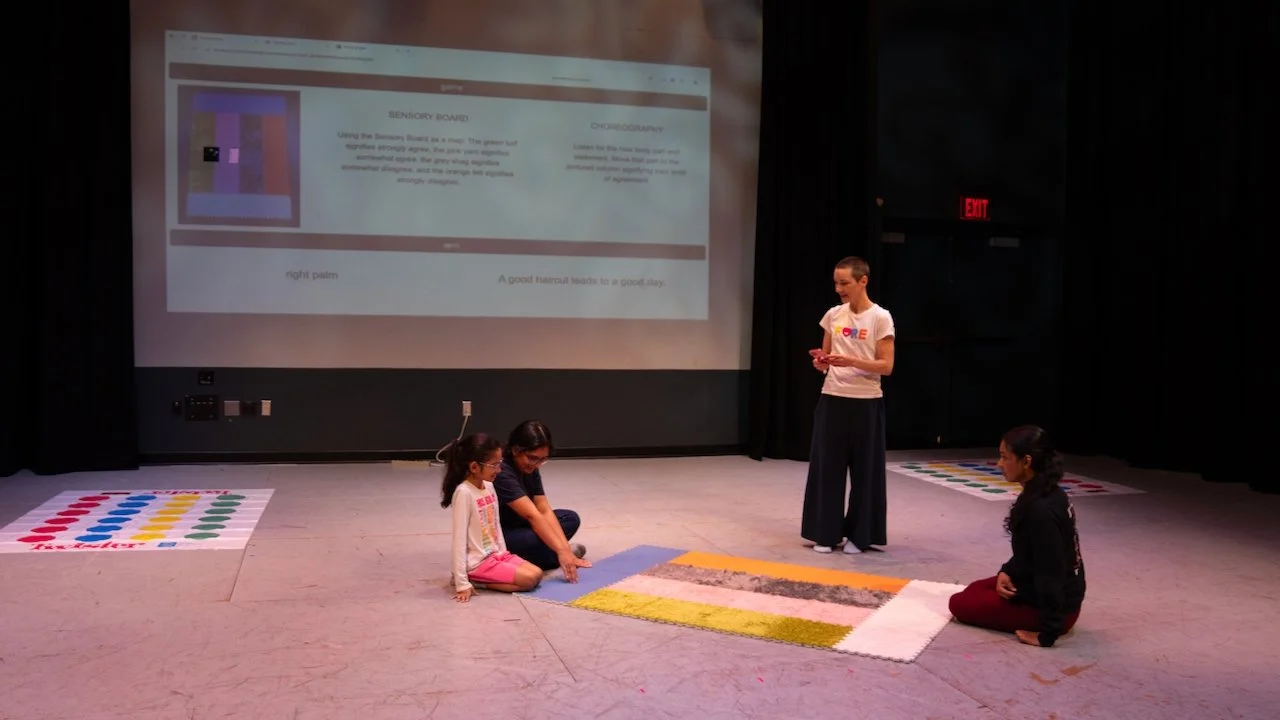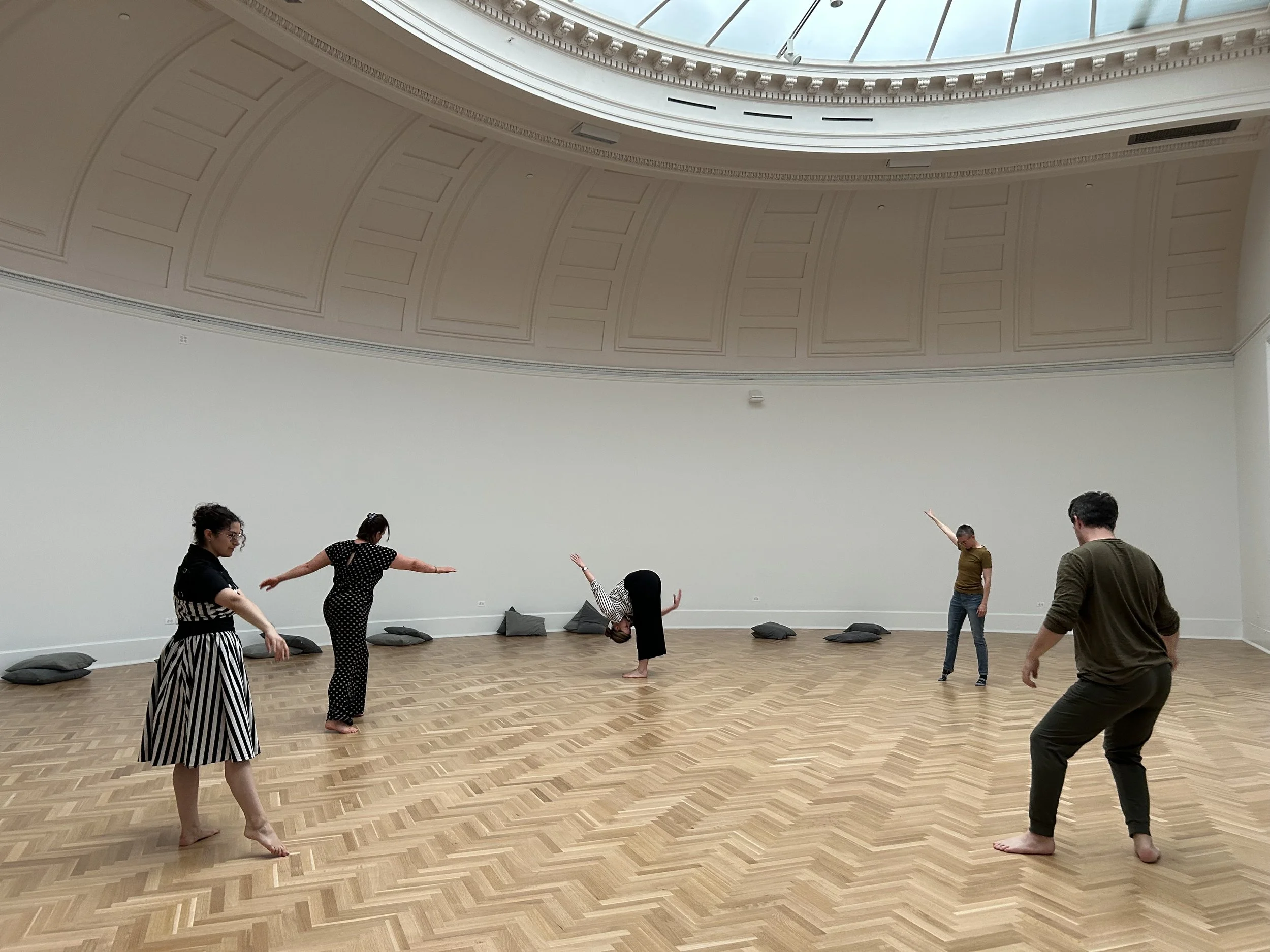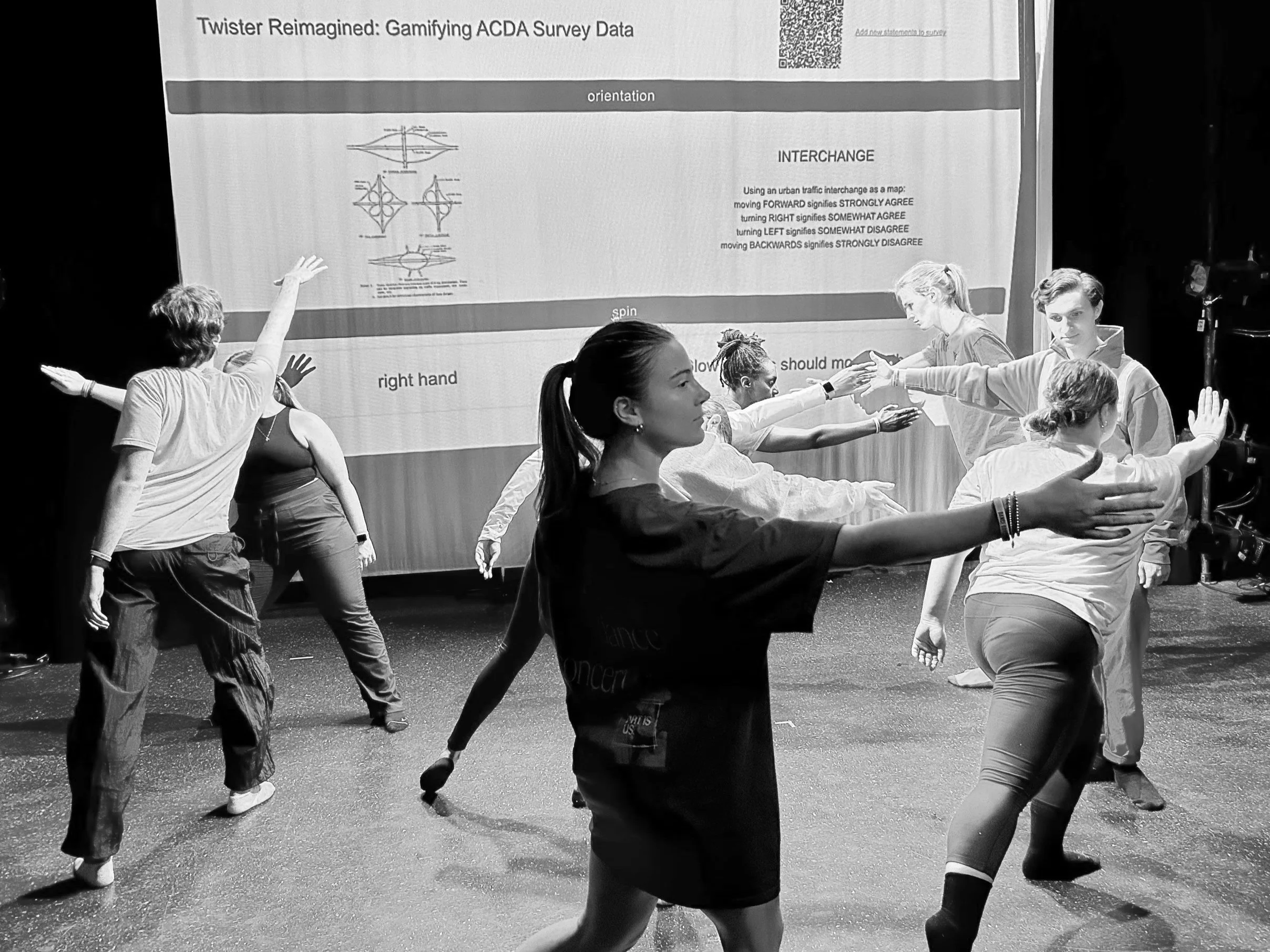Data Kinesthetics | The Data Twist
The Data Twist is a participatory art project that kinesthetically plays with survey data to promote public discourse−to be developed in workshops, deployed as a performative installation, and supported by a choreographic interface. The project's dance games are designed to balance humor and discomfort in order to facilitate nonverbal debate in public settings. The Data Twist especially builds off Krysztof Wodiczko's model of participatory art, which seeks to animate “the city as a site of agonistic public discourse and dynamic democratic process.” The structural similarities between the survey format of The Data Twist and the U.S. Census, elections, and polls presents the conditions for participants to civically exercise parrhesia or "fearless speech," but in the nonverbal register of dance. By fostering embodied debate in a playful and inclusive way, The Data Twist invites people to discover their togetherness in difference through movement, rather than division.
The Data Twist has been made possible through forging many partnerships at the University of Maryland, College Park (UMD) spanning Arts for All, the Maya Brin Institute for New Performance, and the Clarice Smith Performing Arts Center. The project has also received support from metaLAB (at) Harvard and a GALLIM Parent Moving Artist Residency. Ilya Vidrin is the dramaturg.
Lins Derry facilitating the Sensory Board game during the Maryland Day workshop. Image by Taneen Momeni/University of Maryland.
Data Kinesthetics Game Structure
Workshop participants begin by anonymously writing one statement each that they 'strongly agree', 'somewhat agree', 'somewhat disagree', and 'strongly disagree' with, building a survey together. Participants are then guided through a series of "physical orientations" for performing their responses to the survey. One such orientation is the Twister board, where the colored columns represent the different agreement levels. When the dial spins on the choreographic interface to 'Right Foot', for example, participants hear a statement before having to move their right foot to the colored dot representing their level of agreement. The choice not to move is always available. Statements from beta workshops have ranged from "social media makes my life harder", "math is the color green", "texting while driving is sometimes harmless", and "voting should not be available to everyone". Other physical orientations include the conceptual mappings of a compass and highway interchange, and a tactile sensory board.
The future installation will make the dance games accessible for public participation. The launch will feature a performance by workshop participants. As they perform their statement responses in proximity to one another−stretching and twisting across the Twister board, for example−the group's alignments and polarities will be physically revealed as "data embodiments," raising questions about how movement can serve as an aesthetic and representational form of information. Immersive media−including microphones, projections, speakers, and pressure sensors−will activate the choreographic interface, allowing participants to switch between games and "spin" different body parts and statements (see Figure 1). Ambient music will accompany the experience, fostering physical thinking and maintaining a playful atmosphere.
Participants playing the Interchange game at the Dance Studies Association Conference.
Research Questions
At its core, The Data Twist is a research project at the nexus of data kinesthetics, participatory art, and democratic engagement. Methodologically, my goal is to construct the conditions for those concepts and their inherent activities to intertwine, so that a fertile landscape for embodied experience and critical reflection may result. Toward this end, while making detailed choreographic choices about the workshop sequence, game mechanics, user experience within the installation, etc., I maintain my attention on the following research questions:
(Democratic Engagement) How might game rules, interactive interfaces, and physical spaces be "choreographed," such that the resulting social and performative interactions promote open dialogue? How might the physicalization and spatialization of a group's diverse views, accomplished performatively, reclaim public space as a site for open, democratic communication?
(Data Kinesthetics) What happens when we publicly perform our personal data instead of merely sharing them, for example, in a census?
(Participatory Art) What kind of transformation might occur when a group of people design a survey for themselves then take the time to courageously share their responses to that survey with each other while moving?
Throughout the process, I seek to create structures (workshop, performative installation, choreographic interface) where these questions can ultimately be manifested as speculative research objects, which can then be used to probe the underlying hypotheses in the above questions, such as that dance can make data more accessible, affective, and civic.
Workshops and Presentations!
26 April 2024 -Maryland Day
Maryland Day is the University of Maryland's largest community outreach event. For the campus-wide celebration, I ran The Data Twist workshop, which successfully incorporated several of my Introduction to Dance students with the general public
7, 8 March 2025 - American College Dance Association, Mid-Atlantic Conference
Led two The Data Twist workshops at the regional conference
2, 7, 9, and 14 October 2024 - Data, Design, Dance
During the four-day series, graduate students at the School of Theatre, Dance, and Performance Studies at the University of Maryland, College Park experimented with applying design concepts from the areas of human-computer interaction, data visualization, and participatory art to their choreographic process. As part of the learning experience, we "workshopped" the dance games from The Data Twist






